Journeys in Britain and back into history; probing memoirs of Paris and Malta; notes made by the river, by the sea and on the run: these are some of the new books on travel and place coming this year
JANUARY
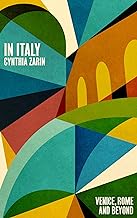
In Italy: Venice, Rome and Beyond by Cynthia Zarin (Daunt, £6.99)
Zarin, a poet, New Yorker contributor and author of children’s books, says she rarely goes to new places but instead retraces her steps, “looking for breadcrumbs I left long ago that were since eaten by birds”. Here she offers a meditation on four Italian spaces: Venice, Assisi, Rome and the Roman church of Santa Maria Maggiore. (The book, due to be published on January 18, was reviewed on December 31 in The Observer by Abhrajyoti Chakraborty.)
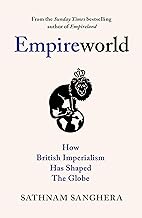
Empireworld: How British Imperialism Has Shaped the Globe by Sathnam Sanghera (Viking, £20)
In the bestselling Empireland, Sanghera examined imperialism’s lasting impact on Britain; in his new book he explores the international legacies – from the creation of tea plantations to environmental destruction, conservation, and the imperial connotations of royal tours. On a journey that takes him from Barbados and Mauritius to India and Nigeria, he “demonstrates just how deeply British imperialism is baked into our world”.
FEBRUARY
The film adaptation of Amy Liptrot’s award-winning Orkney memoir The Outrun — directed by Nora Fingscheidt and starring Saoirse Ronan — is due to have its world premiere at the Sundance Film Festival (January 18-28), so naturally there will be a new edition of the book: The Outrun by Amy Liptrot (Canongate, £10.99, February 1).
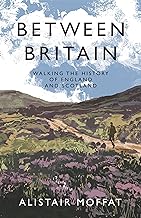
Between Britain: Walking the History of England and Scotland by Alistair Moffat (Canongate, £20)
Moffat, an award-winning writer, historian and lifelong borderer, walks the region where England and Scotland meet — 100 miles from Berwick-upon-Tweed to the mouth of the River Sark — and back through eight centuries of history. Between Britain is “a history book, a travelogue, a personal reminiscence and a gently prodding examination of national identity. But above all it is a celebration of a place and the people who live there.”
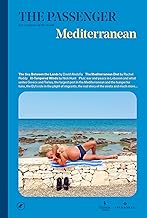
The Passenger: Mediterranean (Europa Editions, £18.99)
The latest edition of the place-based magazine — which includes new writing, photography, art and reportage — focuses on what Homer called “the liquid road”, one that is increasingly militarised, exploited by traffickers and polluted, as well as over-heated and over-fished. Contributors include the novelist and journalist Leila Slimani, the historian David Abulafia and the travel writer and novelist Nick Hunt.
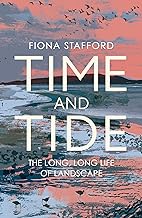
Time and Tide: The Long, Long Life of Landscape by Fiona Stafford (John Murray, £20)
Weaving together stories drawn from literature, local history and her own family heritage, Stafford, a professor of English language and literature at Oxford, leads us along coastlines and through forests and fens, revealing the forces, both natural and human, that transform places.

Poverty Creek Journal by Thomas Gardner (Daunt, £8.99)
Gardner is a poet, a professor of English and a runner, and the Poverty Creek trail in Virginia is where he runs. His book (published first in the United States in 2014) is comprised of 52 brief entries — as in weeks of the year, but also as in the number of sections of Walt Whitman’s “Song of Myself”, one of his favourite poems. He was aiming to “let poems and other bits of writing I dearly love work themselves into the on-going conversation I had with myself and the landscape and the weather over the course of my morning runs in 2012”.
MARCH

All Before Me by Esther Rutter (Granta, £16.99)
Rutter is a non-fiction author from Suffolk who is now based in Scotland. In her early twenties, she suffered a mental breakdown while teaching English in Japan and was sectioned and held in a psychiatric institution until she could be flown home. Her recovery only began when she went to live and work in the Lake District at Dove Cottage, home of William and Dorothy Wordsworth.
All Before Me “is a moving and absorbing account of the struggle to know oneself on the journey into adulthood, intertwined with the stories of the Wordsworth siblings”.
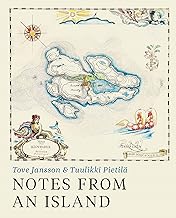
Notes from an Island by Tove Jansson and Tuulikki Pietilä (Sort Of Books, £9.99)
The Moomin creator Tove Jansson and her partner, the graphic artist Tuulikki Pietilä, spent 30 summers on Klovharun, a rocky outcrop in the gulf of Finland, where they would write and paint, energised by the shifting seascapes. Notes from an Island (first published in English in 2021) offers both a memoir of, and homage to, their beloved retreat, with Tove’s spare prose complemented by Tuulikki’s subtle washes and aquatints. This new paperback edition includes a bonus feature, “The Island” – Tove’s acclaimed “essay-poem”.
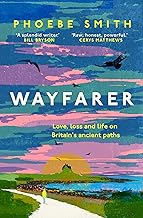
Wayfarer: Love, loss and life on Britain’s ancient paths by Phoebe Smith (HarperNorth, £16.99)
While the travel writer and adventurer Phoebe Smith (whose projects include the podcast Wander Woman) was walking the Camino de Santiago several years ago, she found herself asking: “What’s the point of it all?” She quit her job, ended her long-term relationship and headed home to North Wales. In her search for answers she found herself walking some of Britain’s oldest pilgrim paths, and confronting traumas she thought she had laid to rest. Wayfarer, her publisher says, “reveals how nature and place can heal past wounds, offering a pathway to salvation she’d never thought existed”.
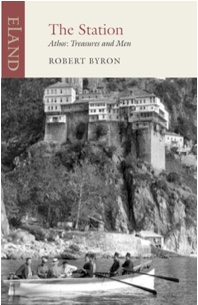
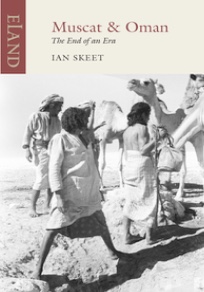
The Station — Athos: Treasures and Men by Robert Byron; Muscat and Oman: The End of an Era by Ian Skeet (Eland, £14.99 each)
The Road to Oxiana (1937), which the critic Paul Fussell acclaimed as a Ulysses and Waste Land wrapped into one, was Byron’s third and most famous travel book, but The Station, his first, was already, Eland says, revealing “the flashing wit, bravery, passion and astonishing powers of visual observation which made him such a brilliant writer”. It follows three high-spirited young men as they visit 20 monasteries on Mount Athos in 1927.
Muscat and Oman was a hermit state, run like a medieval kingdom by Sultan Said bin Taimur, until 1970. In his book (first published in 1974), Ian Skeet, who worked for Shell and was charged in the late 1960s with preparing the wary inhabitants for the coming of oil, offers a portrait of a land on the brink, and a “devastating study of the dead hand of autocracy”.
APRIL
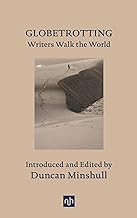
Globetrotting: Writers Walk the World edited by Duncan Minshull (Notting Hill Editions, £15.99)
In his latest collection for Notting Hill, following the success of Beneath My Feet and Sauntering, Minshull brings together work from more than 50 walker-writers, tramping everywhere from the streets of Melbourne to the jungles of Ghana and the icy emptiness of Antarctica. Contributors include Herman Melville, Edith Wharton, Rachel Carson, Jean Pierre Clébert, Colin Thubron and William Boyd.
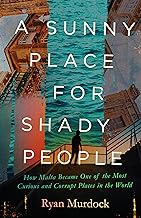
A Sunny Place for Shady People by Ryan Murdock (Trinity University Press, $29.95)
When the journalist Daphne Caruana Galizia, who had uncovered networks of corruption in Malta and abroad, was killed by a car bomb near her home in 2017, her death made headlines around the world. But it didn’t come as a surprise to residents of Malta. Ryan Murdock, a Canadian-born travel writer and podcaster, had been living by then for six years on the island, and says he had seen “an organised criminal network take over the government of a European Union member state with the widespread support of its citizens”. In A Sunny Place for Shady People, he blends travel writing and political reportage “to show why a journalist could be killed in broad daylight in such a small place, and why those who ordered the hit have gotten away with it. The roots of it all are deeply embedded in the culture.”
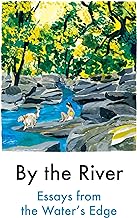
By the River: Essays from the Water’s Edge (Daunt, £9.99)
Ten writers consider the subject of rivers and how they shape us throughout our lives, moulding our creative consciousness as well as demarcating cities. Tessa Hadley revisits Rumer Godden’s novel The River; Joe Hamya pays homage to Virginia Woolf; Caleb Azumah Nelson wanders by the Guadalquivir in Seville; and Amy Jane Beer reflects on how her ideas about rivers were reshaped while she was writing The Flow, with which she won the 2023 Wainwright Prize.
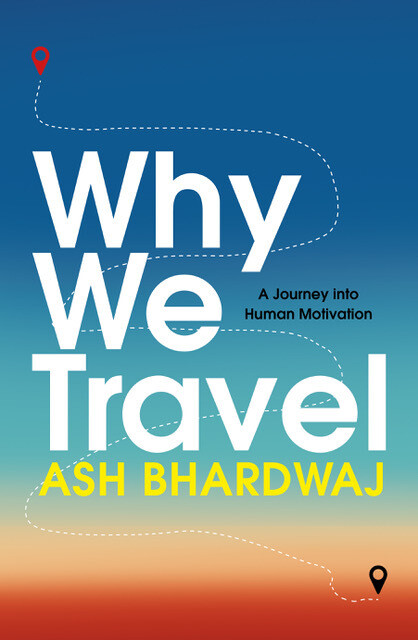
Why We Travel by Ash Bhardwaj (Bedford Square, £20)
Bhardwaj, a writer and film-maker, has travelled through 11 countries along Russia’s European border, walked 500 miles through India and trekked to Everest Base Camp with wounded soldiers. In his first book, he explores the urge to hit the road, and what we can gain from following it. “Why We Travel is both a highly personal and universal book, recounting Bhardwaj’s connections with his Indian heritage and his struggles with grief and identity.” It considers how hurt and hardship can be overcome in travel, “and how serendipity and wonder can help awaken us to our surroundings and leave us more connected to the people and places around us”.
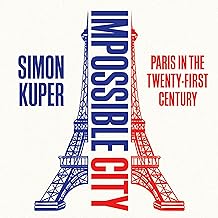
Impossible City: Paris in the Twenty-first Century by Simon Kuper (Profile Books, £18.99)
The Financial Times journalist Simon Kuper (author of the bestselling Chums, about Tory Brexiteers who all went to Oxford) was born in Uganda and raised around the world, but has long been a Parisien d’adoption. He “has grown middle-aged there, eaten the croissants, seen his wife through life-threatening cancer, taken his children to countless football matches in the city’s notorious banlieues, and in 2015 lived through two terrorist attacks”. As Paris gears up to host the Olympics, he offers “an unsparing memoir” of his time in the city.
MAY
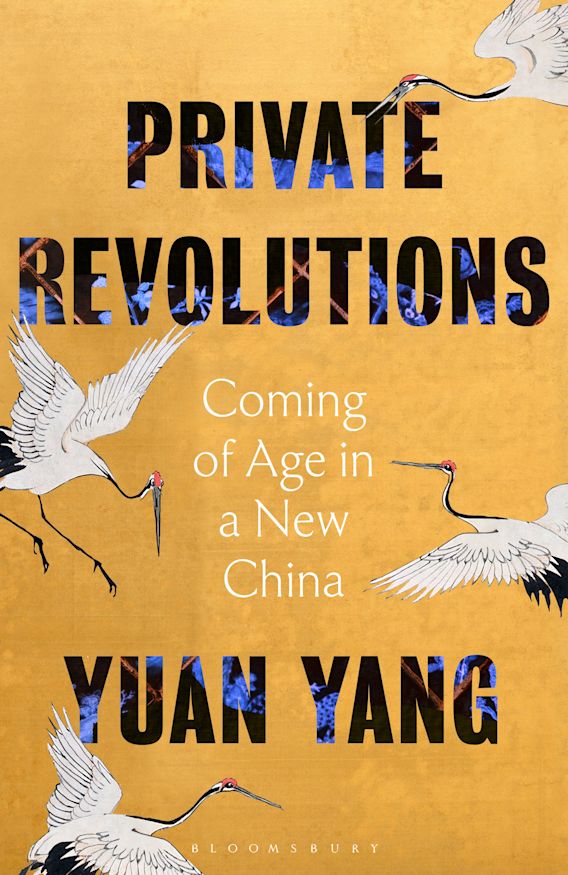
Private Revolutions: Coming of Age in a New China by Yuan Yang (Bloomsbury, £18)
Yuan Yang, a reporter on China for the Financial Times, paints a portrait of the country through the lives of four women who grew up there in the 1980s and 1990s and refused to do what was expected of them. With unprecedented access to the hopes, homes, dreams and diaries of these women over six years, she “gives a voice to those whose stories go untold”.
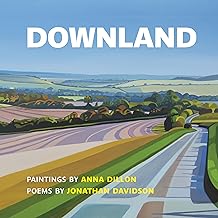
Downland: Paintings by Anna Dillon, Poems by Jonathan Davidson (Two Rivers Press, £16.99)
This collaboration celebrating the landscape of the Berkshire Downs features 20 works by the artist Anna Dillon and a series of poems from Jonathan Davidson inspired both by the paintings and by the landscape. Together they form a tribute to the most popular stretch of the Ridgeway National Trail.
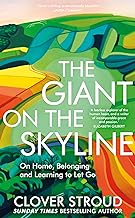
The Giant on the Skyline: On Home, Belonging and Learning to Let Go by Clover Stroud (Doubleday, £18.99)
Faced with the sudden prospect of uprooting her young children to move to the US, while her eldest fly the nest to university, the acclaimed memoirist (author of The Wild Other) considers what home means, and what ties us to the places we love. “What is it that makes a home? What is a home without the roots that tie you to a place? What is a home when a family is split?”

Lost to the Sea: A Journey Round the Edges of Britain and Ireland by Lisa Woollett (John Murray, £20)
Lisa Woollett is the author and photographer of several award-winning books about the sea, beachcombing and mudlarking, including Rag and Bone, for which she received the Royal Society of Literature Giles St Aubyn Award for Non-fiction. For Lost to the Sea, she makes a series of coastal walks, taking in Bronze Age settlements on the Isles of Scilly and submerged prehistoric forests in Wales; a Victorian amusement park on the Isle of Wight and castles in the air off County Clare. Drawing on archaeology, folk tales and meetings with locals, she reveals “how the sea has forged, shaped and often overwhelmed these landscapes and communities”.
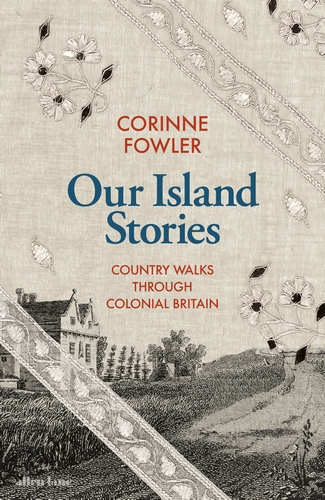
Our Island Stories: Country Walks through Colonial Britain by Corinne Fowler (Allen Lane, £25)
Corinne Fowler is a professor at the University of Leicester specialising in colonial history, decolonisation and the British countryside’s relationship to Empire (and co-author of a headline-making report in 2020 about National Trust properties’ connections to colonialism and historic slavery). In Our Island Stories, she takes 10 country walks exploring the links between Britain’s colonial activities abroad and the enclosure, land clearances and dispossession of Britons at home – and how their effects are still felt today. Her companions on these walks were 10 people with ancestral connections to empire, including Sathnam Sanghera, author of Empireland, and Ingrid Pollard, shortlisted for the 2022 Turner Prize.
JUNE
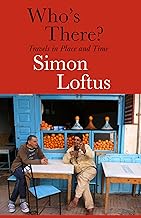
Who’s There? Travels in Place and Time by Simon Loftus (Daunt, £9.99)
Loftus, a former wine merchant, restaurateur and brewery chairman, is as fond of journeying as he is of food and drink. In his latest book, a coda to his acclaimed Pike in the Basement, he offers travel stories ranging in space and time. His explorations begin with a performance of Hamlet off the coast of Africa, in 1607, and each of the stories that follow echoes and reflects the opening words of that play, “Who’s there?”. “They encompass the strange foundations of probability theory, the forthright epitaphs of Suffolk gravestones, the pursuit of wine, dusk on the beach of Essaouira, the simit vendors of Istanbul, an elegy for Palmyra. And much more.”
Scattered by Aamna Mohdin (Bloomsbury, £18.99)
Some of the the best non-fiction I’ve read in recent years has been on the journeys made by refugees and migrants (The Naked Don’t Fear the Water by Matthieu Aikins; Solito by Javier Zamora), so I’m particularly looking forward to this one. Mohdin, chatting to her parents in London after reporting for The Guardian from the Calais refugee camp, came face-to-face with a reality she had been outrunning for nearly two decades: that she had been a refugee herself. In Scattered, she travels to Somalia, the country her parents fled, and back into her own past.
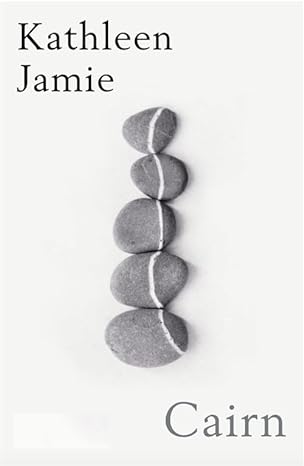
Cairn by Kathleen Jamie (Sort Of Books, £9.99)
Jamie is both a poet (the current Makar, or national poet, for Scotland) and a writer of award-winning non-fiction (Findings, Sightlines and Surfacing) embracing nature, travel and culture. She is also a member of Paperboats, a collective of writers “focused on nature and environment in a time of climate and ecological breakdown”. Cairn is a collection of micro-essays, prose poems, notes and fragments. Placed together, like the stones of a wayside cairn, her publisher says, “they mark a changing psychic and physical landscape”. She “considers the future her children face while recalling her own childhood, and notes the lost innocence in the way we respond to the dramas of nature”.
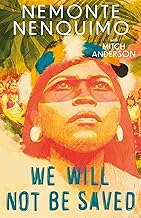
We Will Not Be Saved by Nemonte Nenquimo with Mitch Anderson (Headline, £20)
“I’m here,” Nemonte Nenquimo declares, “to tell you my story, which is also the story of my people and the story of this forest.” Nenqimo, who was born into Ecuador’s Amazon rainforest, has committed herself to defending her ancestral territory, ecosystem, culture, economy and way of life. Her campaigning has won her numerous awards and led to her being named as top “Defender” in Time magazine’s list in 2023 of the most influential change-makers on climate. In this memoir, writing with her husband, Mitch Anderson (founder of Amazon Frontlines, which supports the struggles of indigenous peoples), she digs into generations of oral history, “uprooting centuries of conquest, hacking away at racist notions of indigenous peoples, and ultimately revealing a life story as rich, harsh and vital as the Amazon rainforest herself”.
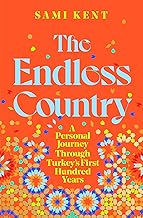
The Endless Country: A Personal Journey Through Turkey’s First Hundred Years by Sami Kent (Picador, £16.99)
Kent, a Turkish-British writer and radio producer who has reported on Turkey for The Guardian, the BBC, Al Jazeera and the London Review of Books, is now working for The Guardian’s award-winning podcast “Today in Focus”. In his first book, he explores the country his father left decades ago and which he himself first moved to as a young man. For a taste of his writing, see his piece for the American magazine New Lines in July 2021.
AUGUST
True North: Travels in Arctic Europe and Island Dreams: Mapping an Obsession by Gavin Francis (Canongate)
In advance of his new book (see below), the 2010 debut by the doctor and prize-winning writer, offering a portrait of the northern fringes of Europe, will be republished in Canongate’s modern-classics list, The Canons. Island Dreams (2020) will appear for the first time in paperback.
SEPTEMBER
The Bridge Between Worlds: A Brief History of Connection by Gavin Francis (Canongate)
In his seventh work of non-fiction, Francis explores the impact of bridges, both actual and metaphorical, in uniting and dividing us, taking in history, geopolitics, literature and psychology. On signing a deal with Canongate, he said: “I’ve been thinking about the themes of this book since I first learned to read with The Ladybird Book of Bridges. Each chapter is a bridge, and each bridge is a doorway into exploring the beauty and restless energy of humanity’s love of connections, but also its fear of them, all around the globe. It’s also a 40-year memoir of travel…”
The Golden Road: How Ancient India Transformed the World by William Dalrymple (Bloomsbury, September)
The award-winning historian (co-host with Anita Anand of the acclaimed Empire Podcast) highlights India’s oft-forgotten position as a crucial economic and civilisational hub at the heart of the ancient and early medieval history of Eurasia. “From Angkor to Ayutthaya, The Golden Road traces the cultural flow of Indian religions, languages, and artistic and architectural forms throughout the world.”
Update, January 17: Since this list went online I’ve come across a few titles that I would certainly have included: Local by Alastair Humphreys; On This Holy Island by Oliver Smith; Sunken Lands by Gareth E Rees. I bet there will be more…

Leave a Reply